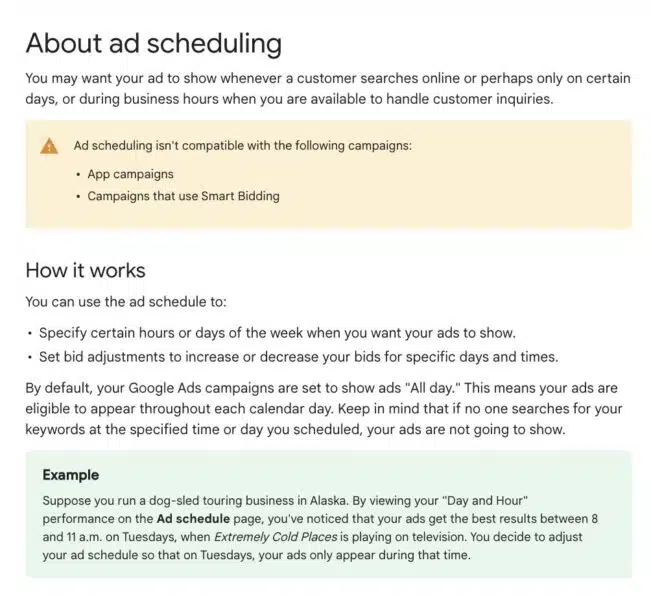Confirmed: Google isn’t dropping ad scheduling for Smart Bidding campaigns
A Google help document change indicated ad scheduling for Smart Bidding campaigns was no longer possible. Google confirms nothing has changed.
An update in Google Help Center indicated the removal of ad scheduling for campaigns using Smart Bidding. This raised eyebrows across the paid search community, but Google has since confirmed nothing is changing.
Ad scheduling lets advertisers control when their ads show, aligning campaigns with business hours or peak performance times. Removing this feature for Smart Bidding campaigns would reduce control and could impact budget efficiency.
Reactions from the field. Scott Carruthers, paid search director at Journey Further, was not a fan of this at all:
- “It’s a step further away from keeping your advertising aligned with your business goals. I fully understand not taking bid adjustments into consideration, but advertisers should be able to choose when their ads run.”
PPC expert Amalia Fowler had a different take.
- “If it’s true, I don’t hate this. Many businesses restrict their schedules unnecessarily, but more transparency from Google would be appreciated.”
Google responds. Google Ads Liaison Ginny Marvin has confirmed on X, that nothing has changed and that ad scheduling can still be used with Smart Bidding Campaigns:

Why we care. When using smart bidding if you can no longer limit ad visibility to business hours, this could potentially lead to wasted spend outside of peak times. While automation can optimize for performance, this kind of update diminishes your control over ad delivery to align with operational hours or staff availability.
First seen. This change was shared by Adriaan Dekker on LinkedIn. He wondered whether Google will make an announcement about this change or whether this might be an error.

Related stories
New on Search Engine Land